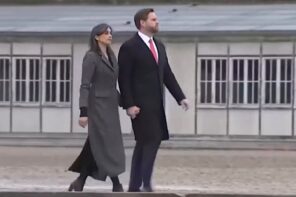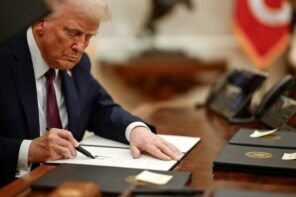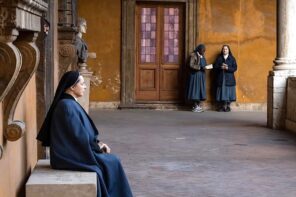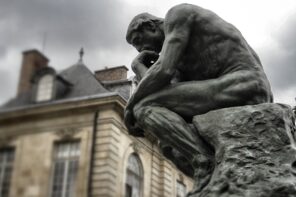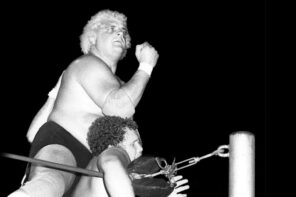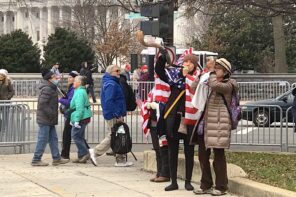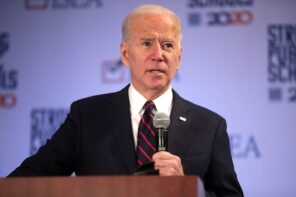Is Jerusalem seeing a “religious war?”
A day after last Tuesday’s terrorist attack that killed four worshippers in a Jerusalem synagogue, Amos Harel wrote in Haaretz that the “attack reinforces the concern that the terror is taking on the trappings of a religious war (not that these trappings were totally absent from the conflict before). We hardly need to elaborate how dangerous this motif is.”
“Palestinians believe that Israel is pushing for a religious war, with the extremist right wing currently ruling Israel,” Palestinian journalist Ahmad Melhem wrote from Ramallah in Al Monitor. “It is trying to build the third Jewish temple in Al-Aqsa’s place, and establish the Jewish state that Netanyahu called on Palestinians to recognize. This means expelling Palestinians from their land, and marginalizing Christians.”
Israeli journalist Avirama Golan, though, contends that casting the situation as a “religious war” only fuels apocalyptic extremism:
So far the usual reasons all the misconceptions of the conflict taking place in Jerusalem are part of religious folklore. But this image would not have gained such great momentum now if there were not certain players that have a vested interest in imposing it as the exclusive interpretative framework for recent events. Chief among those are the leaders and rabbis of the religious right in Israel; lending their vocal encouragement to that group are evangelical Christians in the United States. The latter are looking forward to the last war of Armageddon, in which the Jews have, according to a certain Messianic tradition, a central role. The former, however, wish to bring about the final redemption and the coming of the messiah. This will happen only with the rebuilding of the Temple Mount.
While religious incitement plays a role, describing the current escalation in violence as a “religious war” misses the mark, writes Elisheva Goldberg, who attended the shiva for one of last week’s terror victims, Moshe Twersky:
I saw an Arab man walking out the door with an entourage. His name was Ibrahaim Wassim, and he had come to pay his respects to the victims’ families. He was the deputy head of the Palestinian-Israeli village in the north called Baka el-Garbiyye. He told me that they had come, a delegation of Arab citizens of Israel, because he didn’t want “the extremists to drag us into this.” Har Nof’s residents, too, had sent busloads of community members to the Druze police officer’s funeral, the fifth victim of last Tuesday’s violence. The last thing Wassim said to me was, “We came in the rain and in difficult conditions because we have the same grandfather who commanded us to live together.”
Wassim’s visit was organized by Tag Meir, the same group that brought Jewish Israelis to the East Jerusalem mourning tent of the Abu Khdeir family this summer, when Muhammad Abu Khdeir was kidnapped and murdered soon after the same fate befell three Israeli boys from the Gush Etzion bloc. There, too, religious people demonstrated that they can share in each others’ losses.
Goldberg isn’t just engaging in a kumbaya moment here. Her discussion of “religious people” sharing common ground, common space, sharing in grief, and (presumably, at some seemingly far-off time, sharing in joy) is not intended to make you think that everything would be rosy if all “religious people” were sufficiently generous of spirit to pay their respects to mourners of their enemies in a so-called “religious” war.
As Goldberg acknowledges, religious incitement, particularly around the Temple Mount, is fueling some of the violence. But more than by religious feuds, Goldberg writes, the violence is driven by power, powerlessness, and frustration:
[T]here can be no such thing as coexistence when disparities of rights and power, such as there are in the West Bank and East Jerusalem, maintain their grip. It is in part for this reason that religion has long taken a back seat to the question of sovereignty, borders, and rights. East Jerusalem is aflame not because Islamists are enflaming it, but because life there has become unbearable. The two cousins who armed themselves, made their way to Har Nof early in the morning and then rushed into a synagogue screaming “Allahu Akbar” were allegedly members of the Popular Front for the Liberation of Palestine (PFLP), an organization that, since its founding, has been an avowedly secular organization. The “Allahu Akbar” is, as it has often been, a cultural affect to the drama of their act. No one has proved that these were religious men. Indeed, the only motive whirling around the rumor mill is that they were incensed by conflicting reports regarding the circumstances of the death of a Palestinian Egged bus driver who they believe may have been murdered by Israelis.Consider the situation in East Jerusalem right now — not as an excuse for violence, but as a motivator for violence. For the last few weeks, there have been clashes in East Jerusalem between Israeli police and Palestinian youth not because the Israeli police officers are Jewish, but because there has been a massive “crackdown” — in the words of one Jerusalem Post opinion writer, “collective punishment”. This includes closures of main roads, arbitrary and excessive use of crowd dispersal methods (tear gas, rubber bullets), and the random spraying of ghastly “skunk” water among houses. Last week in Issawiyya, for example, the police blocked off three of the four main roads in and out of the neighborhood. In a protest against the police action, sixteen protestors were treated for excessive tear gas inhalation, and an 11-year-old boy was shot in the face by a rubber bullet and rushed to the hospital. These kinds of reactions are the rule, not the exception.
So, is it a “religious war,” when some people are indeed feuding over control of holy sites, when people are targeted for their religion, when people invoke something sacred as a justification for their cause? Or does calling it a “religious war” only serve as ammunition for its aspiring combatants?
